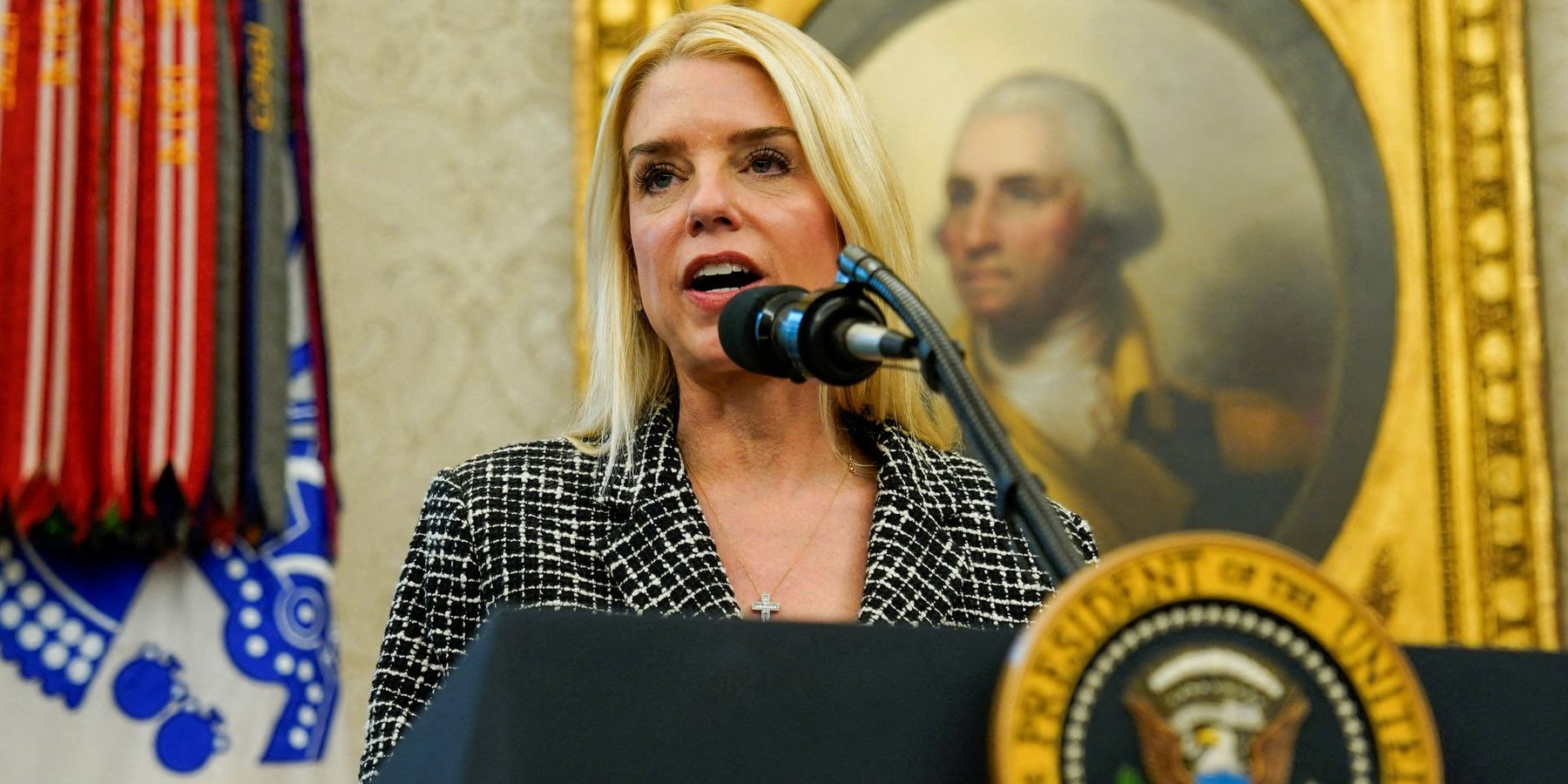Buried within a flurry of memos from the Department of Justice Wednesday was a clear and concise invitation for foreign actors and lobbyists to secretly meddle in America.
When it comes to the nation’s preeminent law for regulating foreign influence in the U.S., the Foreign Agents Registration Act (FARA), the DOJ is henceforth only going to bring criminal charges in “instances of alleged conduct similar to more traditional espionage by foreign government actors,” according to a memo sent late Wednesday from Attorney General Pam Bondi.
“These changes are an invitation to foreign actors to interfere in American affairs,” Aaron Zelinsky, a former DOJ national security prosecutor, told Bloomberg Law, which first reported this news. “Even worse, it’s an invitation to Americans to help them do it.”
Bondi knows all of this better than most, as she was previously a registered foreign agent working for Ballard Partners, a Florida-based firm with close ties to President Trump. She provided “advocacy services relative to U.S.-Qatar bilateral relations” on a contract worth $115,000 a month.
Firms representing foreign governments, like Ballard and others covered by FARA are required to disclose certain information about who they are working for, who they are contacting, and the size of their contracts. But, with Bondi’s announcement, fear of punishment for flauting the these disclosure requirements will disappear along with the transparency they afforded to the American people. This is music to the ears of foreign government officials looking to covertly influence American politics and lobbyists looking to avoid disclosure — such as Bondi’s colleague Kash Patel, Trump's nominee for head of the FBI, who came under fire this week for his undisclosed work for Qatar.
Citing concerns of “risks of further weaponization and abuses of prosecutorial discretion,” Bondi also disbanded the Foreign Influence Task Force, which was set up to identify covert foreign influence operations. For all of the talk of the weaponization of FARA, the DOJ has only brought 13 FARA cases in the past three years.
And several of those Biden-era FARA cases — and closely related foreign influence statutes — involved high-level Democrats, not Republicans. That list includes New York City mayor Eric Adams, Rep. Henry Cuellar (D-Texas), and, of course, former Democratic Senate Foreign Relations Committee Chair Bob Menendez, who just last week was sentenced to 11 years in prison for taking bribes — including piles of cash and gold bars — from the Egyptian government. It’s unclear if corruption cases short of espionage, such as these, would be pursued under Bondi’s new DOJ guidelines.
Josh Rosenstein, a partner at Sandler Reiff Lamb Rosenstein & Birkenstock, which advises clients on FARA compliance, explained via email that he is concerned that “a wide swath of foreign influence operations would go undisclosed” under the new guidelines. For instance, Azerbaijan’s Deputy Foreign Minister scared off several Washington lobbyists last year after asking them to avoid FARA disclosure. Amidst the Trump Administration’s foreign influence fire sale, he might find it easier to shop around for a new contract off the books.
With criminal charges much less likely, Bondi claims that FARA will still be able to focus on “civil enforcement.” Good luck with that; FARA does not have civil investigation authority or even the ability to issue civil fines, rendering this concession all but useless. There are no speeding tickets for minor FARA violations, which is a glaring weakness that multiple FARA reform bills have sought to remedy.
In response to a series of questions seeking clarity on the threshold for criminal charges and how they plan to enforce civil fines, DOJ spokesperson Peter Carr declined to comment beyond the memo.
Relying on these toothless tools will cripple America’s ability to fight malign foreign influence in the U.S. Authoritarian countries stand to benefit most from this lack of enforcement. Not only do they lead the way in lobbying activities, but some of the biggest spenders on foreign influence under FARA are regimes like China, Saudi Arabia, and Qatar. And, that’s just the funding that’s been reported. Under Bondi’s new guidelines, firms worried about the reputational risks of working with an abusive despotic client — like the firms that cut ties with Saudi Arabia after the murder of Jamal Khashoggi — will now have a perverse incentive to simply avoid registering altogether. Bondi’s guidance effectively gives them the green light to keep all their influence off the books.
If the Trump administration wants to live up to its slogan of putting “America First” the very least it can do is defend America from foreign meddling. President Trump and Attorney General Bondi should rescind this guidance and put America first by defending it from covert foreign influence.
- The top five foreign influence fails of 2024 ›
- Can think tanks be foreign agents? ›
- New pal Trump dumps all foreign bribery charges for Mayor Adams | Responsible Statecraft ›
- Foreign agent disclosures already down more than 30% | Responsible Statecraft ›
- He took Qatar’s money, now Kash Patel handling their FBI files? | Responsible Statecraft ›
















